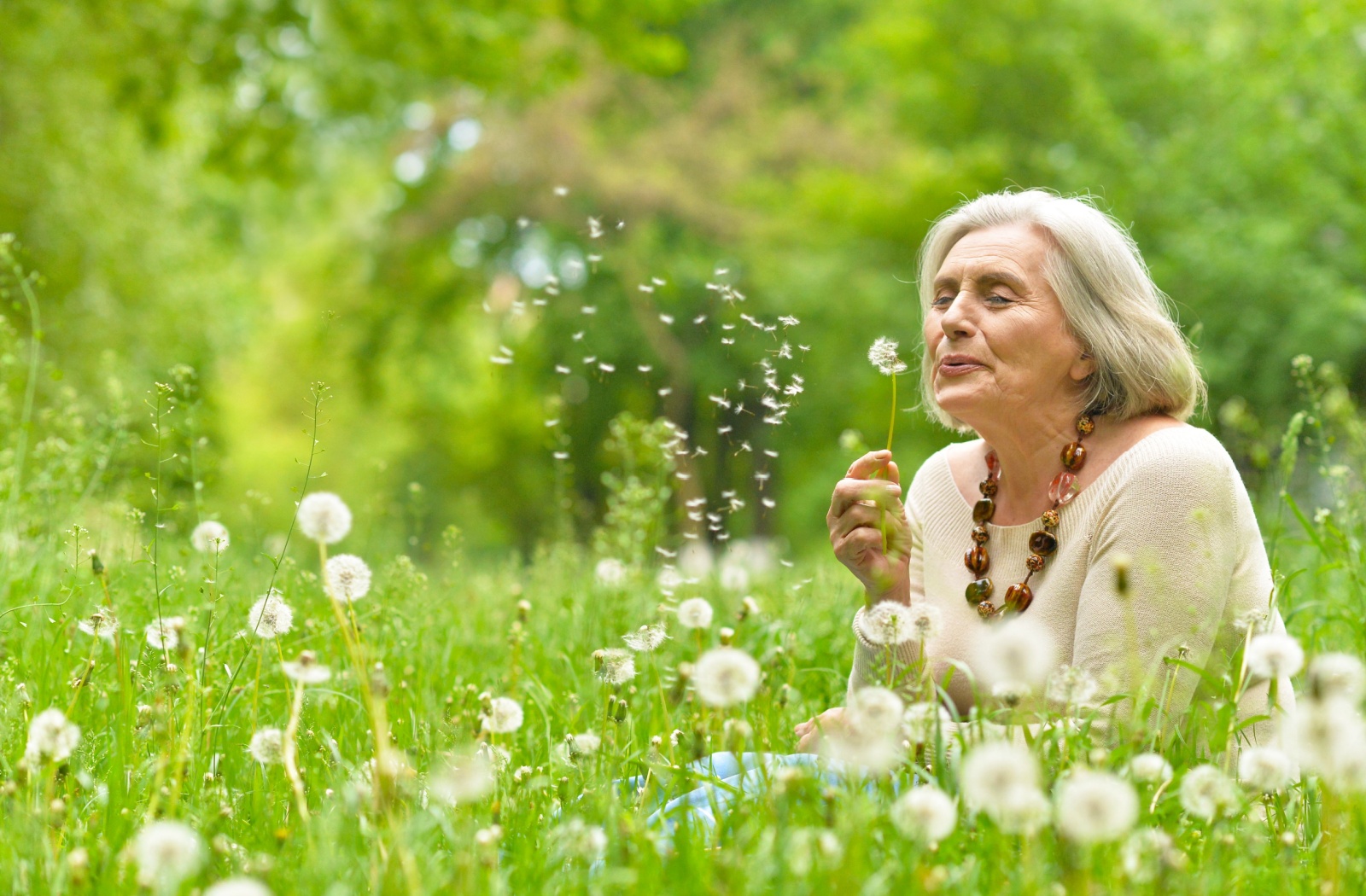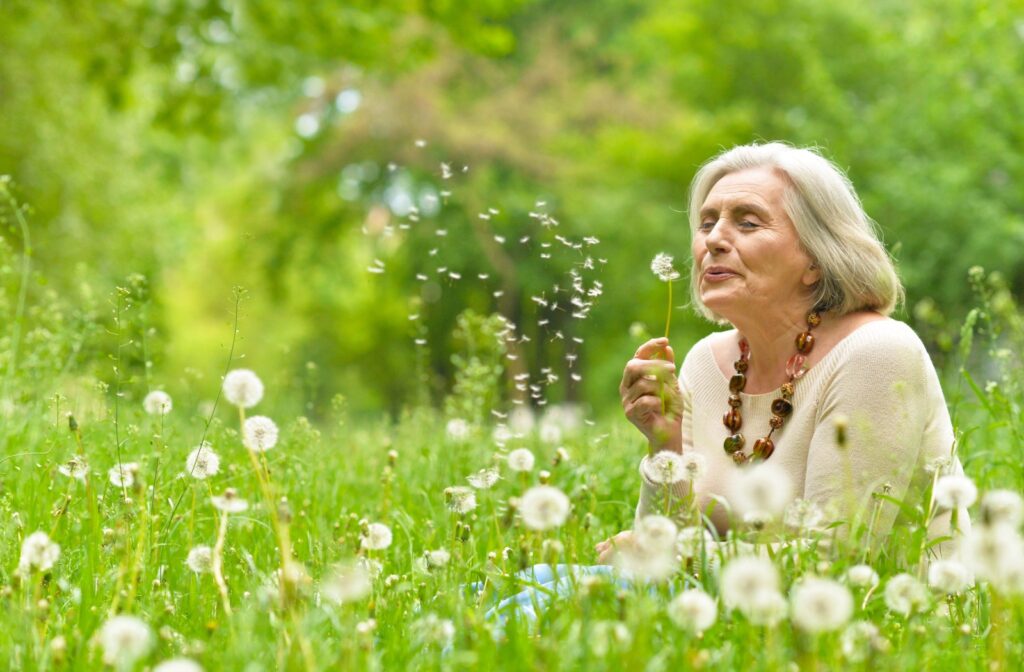As we age, our mental health can deteriorate for several reasons, including loneliness, isolation, cognitive decline, and health problems. So, it’s essential to consider ways to improve and maintain our mental health throughout our aging years. Staying active, sleeping enough, staying social, and continuing to challenge oneself are all ways that can boost mental health while aging.
Living in and being a part of a senior living community, such as Urbana Place Senior Living, can make something like socialization much easier than living alone as a senior. But there are plenty of ways a senior can get out and stay active, work on being mindful, and get a good night’s sleep in most living situations.
How Common Are Mental Health Issues in Seniors?
Mental health issues are prevalent among seniors, affecting over 20% of adults above the age of 60 years. These include mental or neurological disorders, excluding headache-related ones, causing 6.6% of total disability.
Common mental health issues and conditions among seniors include:
- Anxiety
- Severe cognitive impairment
- Mood disorders like depression or bipolar disorder
- Dementia
There has been a reported increase of 25% to 30% in mental health problems in seniors since April 2020, yet less than 50% of those seek treatment. This is a staggering statistic that accounts for around 20 million adults.
Signs that a senior may be experiencing some form of mental health issues may include:
- Trouble sleeping or sleeping more than usual
- Anger, irritability, or aggressiveness
- Changes in mood, energy level, or appetite
- Worrying about everything or increased stress
- Sadness or hopelessness
Keep in mind that none of these necessarily mean that a senior is depressed or anxious. But they could point towards something more going on below the surface, and it’s good to be aware of the signs that someone may be struggling.
Ways to Boost Mental Health While Aging
There isn’t a magic cure-all to boost mental health and prevent mental illness. However, there are steps seniors can take to minimize their risk of experiencing mental health issues as they age.
Stay Active
Exercise has proven to have remarkable benefits on mental health, including reducing anxiety and depression, improving mood, and boosting cognitive function. Regular physical activity also releases endorphins, which can reduce stress and improve overall well-being. Consider incorporating a daily exercise routine, such as walking, cycling, or swimming, into your lifestyle, and enjoy the mental health benefits that come along with it.
Exercise also provides overall health benefits like improving cardiovascular health, strength, balance, and mobility, in addition to mental health benefits. So, the CDC recommends that older adults get between 75 and 150 minutes of physical activity (depending on intensity), 2 days of strength training, and balance exercises weekly.
Get Enough Sleep
Sleep is crucial to overall well-being, including mental health. But sleep patterns often change as we age, which can make it harder to get a full night’s rest. These altered sleep patterns can contribute to or cause conditions like depression and anxiety.
So, it’s crucial to create a bedtime routine that includes relaxing practices like dimming the lights, avoiding screens, and engaging in calming activities like reading or meditating. Additionally, it’s essential to maintain a consistent sleep schedule and avoid caffeine or alcohol in the evenings.
Connect with Others
Social isolation and loneliness can take a severe toll on a senior’s mental and physical health. It’s essential to connect with others regularly and maintain meaningful relationships. A senior could consider joining a social club, volunteering, or attending community events.
Because of technology, seniors can stay connected with their loved ones, even if they’ve transitioned into a senior living community away from their families.
Challenge Your Brain
As we age, cognitive decline is a common concern, and it can affect mental health. However, keeping your mind active can help promote cognitive function and mental wellness. Consider challenging your brain regularly through activities like crossword puzzles, sudoku, card games, or even learning a new skill. Additionally, reading books or taking courses can help improve memory and concentration and boost overall cognitive function.
Practice Mindfulness
Mindfulness practices like meditation or deep breathing have several mental health benefits, including reducing anxiety and depression symptoms, promoting relaxation, and enhancing overall well-being.
Notably, mindfulness practices may also be effective in managing age-related chronic conditions like diabetes or heart disease. Consider incorporating mindfulness practices into your daily routine to reap the benefits for your mental and physical health.

Prioritizing Your Mental Health with Planning Ahead
Mental health is crucial to overall well-being, especially as we age. Therefore, it’s essential to consider ways to promote and maintain mental wellness regularly. Incorporating some or all of the practices discussed above can have significant impacts on our mental health. Remember to prioritize your mental well-being regularly and seek professional help if needed.
Part of prioritizing your physical and mental health is planning for how you or a loved one will live in the future, whether that’s assisted living or some other senior living accommodation. Contact our compassionate team at Urbana Place Senior Living if you’re considering Brooklyn Park for yourself or a loved one. We’re happy to book a community tour so you can see what Urbana Place Senior Living has to offer.



